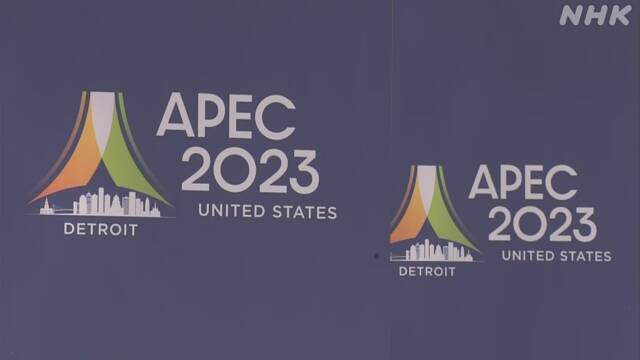The APEC = Asia-Pacific Economic Cooperation Trade Ministers' Meeting will begin in Detroit, USA, on June 25. At the G7 Hiroshima Summit, we agreed to strengthen supply chains = supply networks for important minerals, etc., but the focus is on how far we can come up with a unified response at APEC, in which China and Russia participate.
The APEC Trade Ministers' Meeting, which will bring together 21 countries and regions surrounding the Pacific Ocean, will be held in Detroit, U.S., for two days from June 25, with METI Minister Nishimura and State Minister for Foreign Affairs Yamada attending from Japan.
At the meeting, discussions are expected to be held on ▽strengthening supply chains = supply networks such as important minerals and semiconductors,
▽responding to
climate change issues, and ▽strengthening food security,
which were
major themes at the G2 Hiroshima Summit.
Based on the outcomes of the Hiroshima Summit on these themes on these themes, the United States, and the United States, which holds the Japan, would like to call on emerging and developing countries, also known as the "Global South," to collaborate.
However, China and Russia are also participating in APEC, and there were a number of cases where the joint statement could not be adopted at last year's ministerial meeting.
Both countries are increasingly opposed to the G7 Hiroshima Summit Leaders' Declaration, and the focus is on how far APEC can come up with a unified response.
On the other hand, the IPEF = Indo-Pacific Economic Framework Ministerial Meeting is scheduled to be held in Detroit on the 7th, in which 27 countries, including Japan, the United States, and India, will participate.
IPEF is a framework advocated by the United States with China's increasing influence in mind, and Japan would like to cooperate with the United States to lead to progress such as partial agreement in negotiations.

